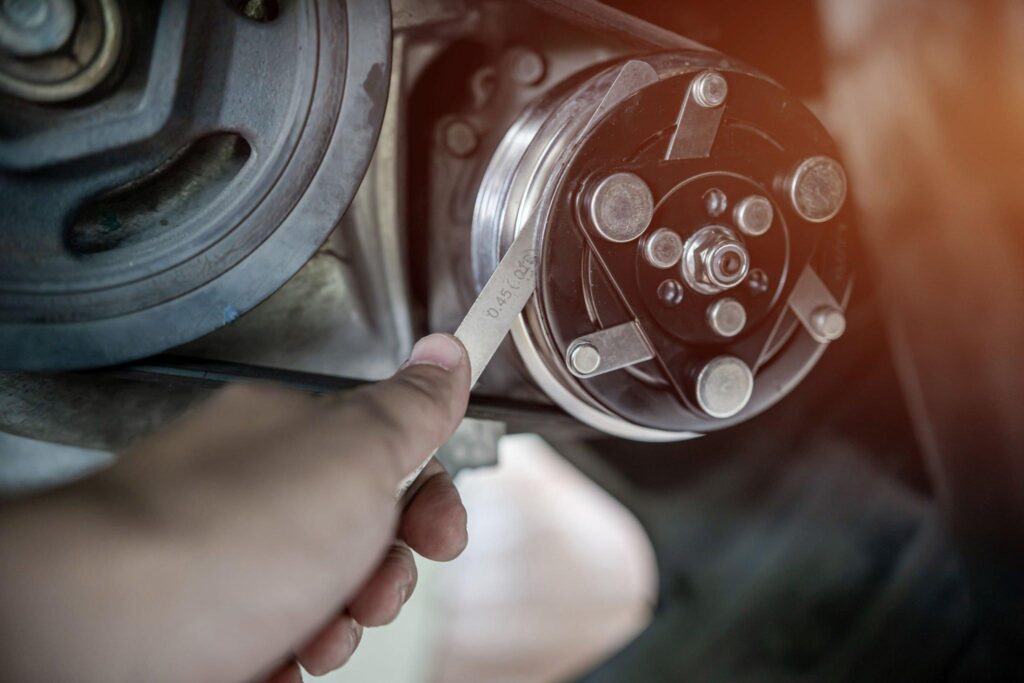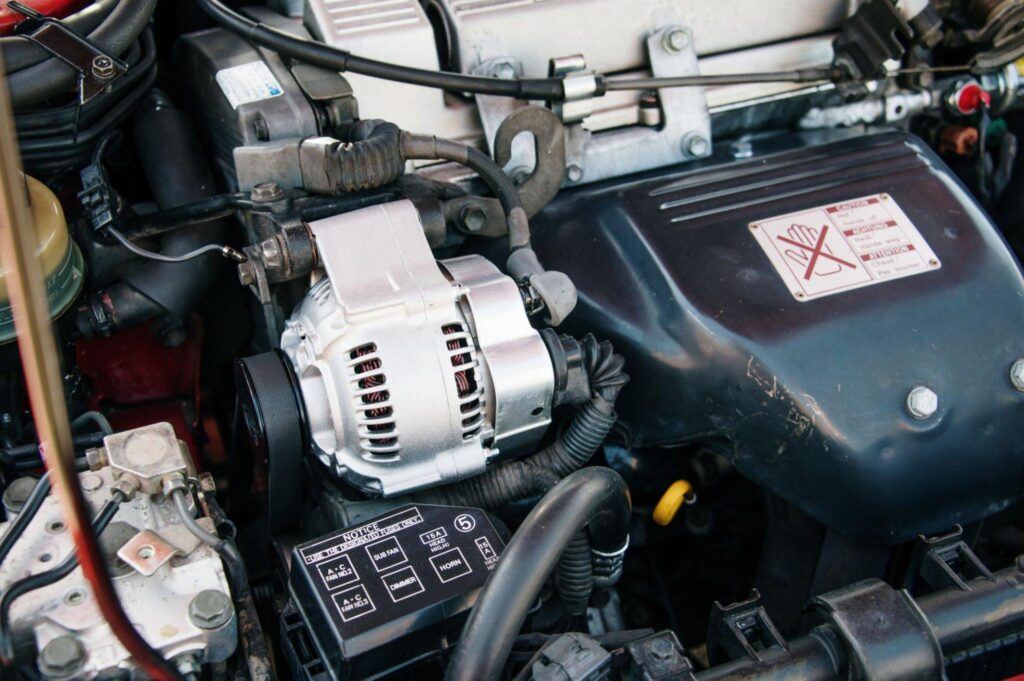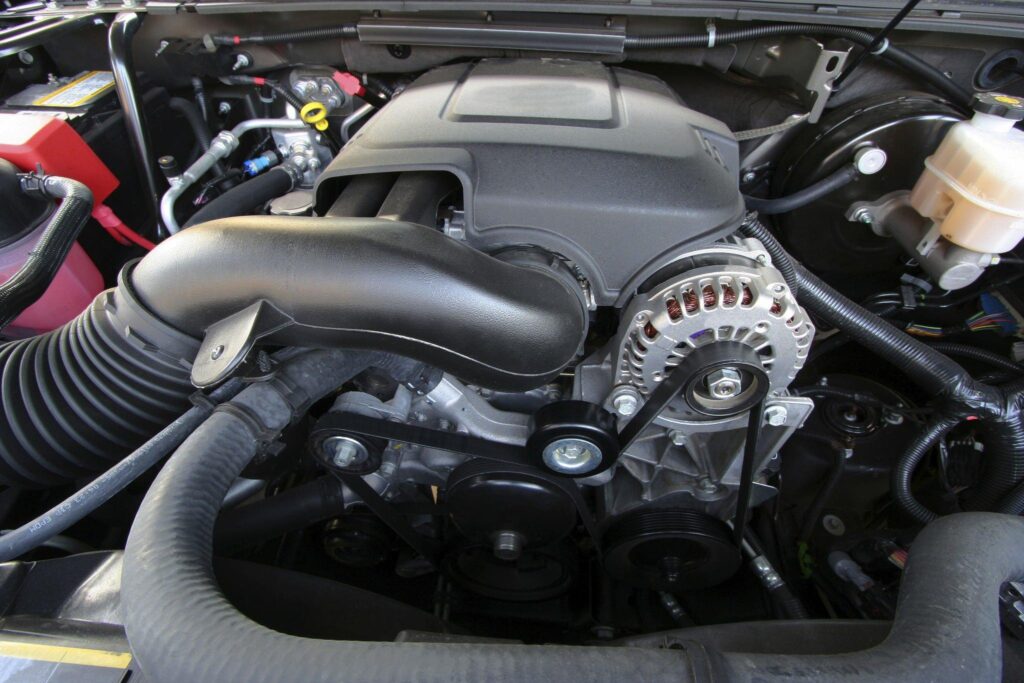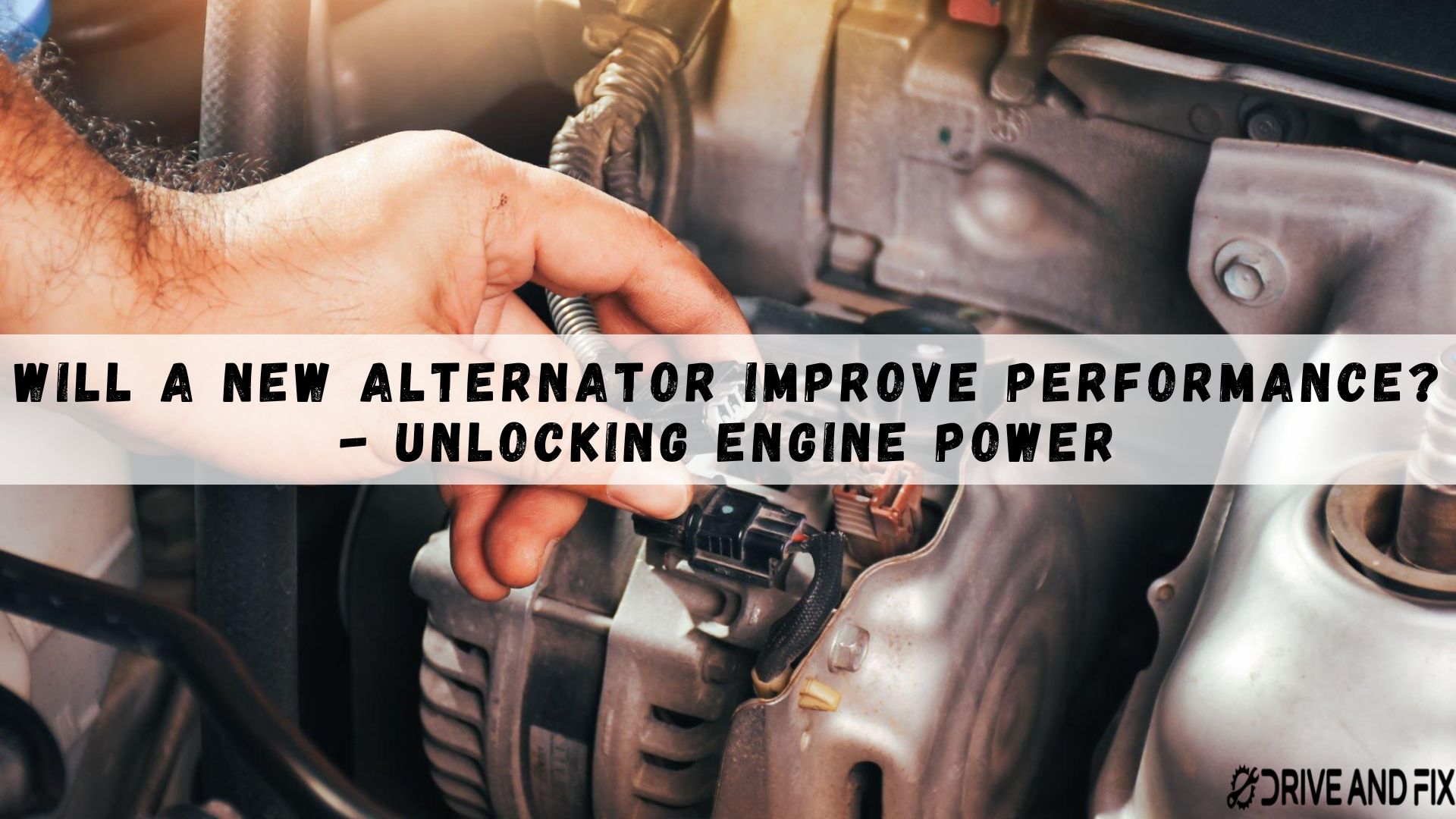A new alternator can have a significant impact on the performance of your vehicle. It is an essential component of the charging system, responsible for generating electricity to power the car’s electrical systems and charging the battery. When the alternator is not working correctly, it leads to various problems, including poor engine performance, battery drain, and even stalling. So, will a new alternator improve performance? Yes, it will, by ensuring that the charging system is working efficiently.
Here, we will be exploring the relationship between alternator upgrades and engine performance. Read on to find out more.
How Will a New Alternator Improve Performance?

The alternator plays a critical role in a vehicle’s charging system, responsible for generating electricity to power the car’s electrical systems. It works by converting mechanical energy from the engine into electrical energy. The component is connected to the engine through a belt and pulley system, which allows it to spin as the engine runs.
As it spins, it generates electricity through electromagnetic induction. Inside the alternator are a set of wire coils called the stator and a rotor with a group of magnets. As the rotor spins inside the stator, it induces an electrical current in the stator coils. This electrical current is then sent to the car’s electrical systems through a set of diodes, which act as a rectifier to convert the alternating current (AC) generated by the alternator into direct current (DC) that the car’s electrical systems can use.
The electrical systems powered by the alternator include the ignition system, fuel injection system, and the car’s computer. The ignition system is responsible for starting the engine, while the fuel injection system controls the fuel delivered to the engine. The car’s computer, also known as the engine control module (ECM), is responsible for monitoring and controlling various systems, such as the engine and transmission, and provides information to the driver via the instrument cluster.
Alternator also charges the car’s battery, which is used to power the car’s electrical systems when the engine is not running. A properly functioning alternator helps ensure that the battery is always charged and that the car’s electrical systems are working properly, which is why a new alternator can improve a vehicle’s performance.
Relationship Between a Functioning Alternator and Efficient Engine Operation?
The alternator generates electrical power to run the vehicle’s electrical systems, such as the headlights, radio, and air conditioning, as well as charge the battery. It allows efficient engine operation by ensuring that the battery has enough power to start the engine and run all of the electrical systems, which can help prevent strain on the engine. It also helps improve fuel efficiency by not overloading the battery and causing the engine to work harder.
You May Also Like: Blown Fuse Car Won’t Start? Here’s What You Need to Know
Engine Performance Resulting From a New Alternator

- Improved starting: A new alternator helps ensure the battery has enough power to start the engine quickly and smoothly, improving overall engine performance.
- More electrical power: It provides more electrical power to the vehicle’s systems, which can help reduce strain on the engine and improve performance.
- Improved fuel efficiency: A new alternator can help improve fuel efficiency by not overloading the battery and causing the engine to work harder.
- Reduced risk of breakdown: A new alternator can help reduce the risk of breakdown caused by a faulty alternator, improving overall engine performance and reliability.
- Reduced engine load: Unused alternator can reduce the engine load by providing enough power to the vehicle’s systems, reducing the strain on the engine
- Better charging of battery: A new alternator will provide better charging of the battery so that the battery remains in good condition resulting in better engine performance.
It’s worth noting that a new alternator will not improve the engine’s performance per se, but it will ensure that the engine is not hindered by a faulty alternator and will work more efficiently.
The Role of a New Alternator in Battery Charging
A poorly functioning alternator can lead to battery issues in a few ways:
- Undercharging: If the alternator is not working correctly, it may not generate enough electrical power to charge the battery. This can cause the battery to gradually lose its charge, leading to difficulty starting the engine or dimming the headlights.
- Overcharging: A faulty alternator may overcharge the battery, which can cause the battery to overheat and shorten its lifespan. It can also cause the battery to leak or even explode.
- Voltage fluctuation: A poorly functioning alternator can cause voltage fluctuation, damaging the battery and the vehicle’s electrical systems. It can cause the battery to wear out faster and can cause damage to other vehicles’ electrical components.
It’s important to note that a worn-out alternator can also cause issues with the vehicle’s electrical systems, such as dim headlights, and can lead to a complete failure of the alternator. In that case, the engine may not start or run at all.
Therefore, it is important to get the alternator checked and replaced if it is not functioning correctly to avoid battery issues and ensure the engine’s smooth running.
Impact of Proper Battery Charging on Vehicle Performance
- Improved starting: An adequately charged battery ensures that the engine starts quickly and smoothly, improving overall engine performance.
- Increased electrical power: A well-charged battery provides enough ability to run the vehicle’s systems, such as the headlights, radio, and air conditioning, which can help reduce strain on the engine and improve performance.
- Improved fuel efficiency: A properly charged battery helps improve fuel efficiency by not overloading the battery and causing the engine to work harder.
- Reduced risk of breakdown: An adequately charged battery helps reduce the risk of breakdown resulting from a weak or dead battery, hence improving overall engine performance and reliability.
A proper battery charging control can also extend the battery’s life, saving the cost of frequent battery replacements.
On the other hand, a poorly charged battery can cause issues such as slow cranking, no cranking, electrical systems not functioning, or even damage to the battery itself, which can cause problems to the vehicle’s electrical systems.
Ensure Proper battery charging by ensuring that the battery is charged to the correct voltage level and using a quality battery charger or alternator. It’s also important to regularly check the battery’s electrolyte level and ensure that the battery terminals are clean and free of corrosion.
Impacts of a New Alternator on Vehicle Reliability
As the alternator ages, it becomes worn out and less efficient leading to several problems, including:
- Reduced battery life: If the alternator is not generating enough power, the battery may not charge fully, leading to reduced battery life.
- Electrical component failure: If the alternator is not generating enough power, electrical components such as the headlights, radio, and power windows may not function properly or may fail.
- Difficulty starting: The vehicle may have trouble starting if the battery is not being charged properly.
- Warning lights on the dashboard: A failing alternator may trigger warning lights on the dashboard, such as the battery or charging system warning light.
You will need to replace a worn-out alternator, which is costly. Conduct regular checks to ensure it is functioning properly and prevent costly repairs.
Why You Should Choose a High-quality and Reliable Alternator

Choosing a high-quality and reliable alternator is important for several reasons:
- Longevity: A high-quality alternator is built to last and will have a longer lifespan than a lower-quality one. This means that it will require less frequent replacement, which can save you money and prevent breakdowns in the long term.
- Improved performance: A high-quality alternator will perform better than a lower-quality one. This means that it will generate power more efficiently and effectively, improving the vehicle’s overall performance.
- Compatibility: A high-quality alternator will be compatible with the vehicle’s electrical system. That will ensure that the alternator is appropriately installed and will function correctly, preventing any damage to the car.
- Warranty: High-quality alternators often come with a warranty, which gives you peace of mind knowing that the alternator will be replaced if there is any defect or failure.
- Reliability: High-quality alternator designs are reliable. That helps prevent breakdowns and ensures that the vehicle’s electrical system runs appropriately.
- Safety: A top-quality alternator will ensure that the vehicle’s electrical system is running safely, which will help prevent accidents or injuries.
Overall, choosing a quality and reliable alternator is essential for maintaining a vehicle’s reliability and performance and for safety reasons. It’s vital to ensure you get an alternator from a reputable brand or supplier that is compatible with your vehicle.
Final Thoughts
To wrap up, will a new alternator improve performance? A bad or old alternator can lead to several problems, such as reduced battery life, electrical component failure, difficulty starting, and warning lights on the dashboard. Replacing an old alternator with a new one can provide many benefits, including improved battery life, enhanced electrical component function, better fuel economy, increased power output, and improved vehicle performance.
Are you facing a issue of seeing the brake and battery warning lights come on after replacing your car’s alternator? Don’t worry, you’re not alone! It’s a frustrating problem, but it can be easily resolved. Take a look and find out – Why Brake and Battery Light On After Replacing Alternator?
Read Our Popular Post:
The Essential Guide to Blown AC Fuse In Car Symptoms
Can I Apply Clear Coat the Next Day? The Ultimate Guide
Is it OK to Sit in Car with AC On? Here’s the Answer
Blown Fuse Car Won’t Start? Here’s What You Need to Know
What to Do When Your Battery Light Stays On After Key Pulled?


